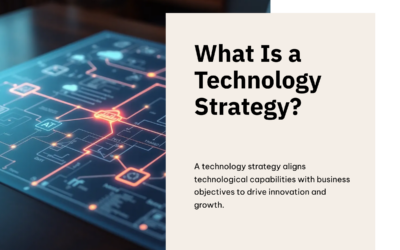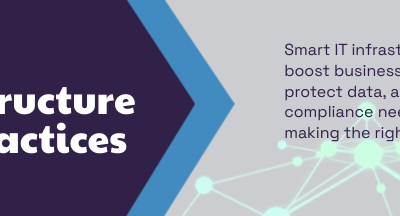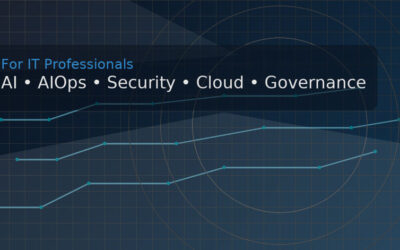As technology continues to evolve at breakneck speed, the demand for highly skilled IT professionals is growing. If you’re looking to enter the tech industry or advance your career, focusing on high-demand, high-paying roles is key. Here are five IT careers poised to offer excellent salaries and growth opportunities in 2025:
1. Artificial Intelligence (AI) Specialist
The rise of AI in modern business applications has created a booming demand for AI specialists. From enhancing customer service through chatbots to improving business operations using predictive analytics, AI specialists play a crucial role in helping companies leverage data-driven insights.
Key Skills:
- Proficiency in machine learning frameworks (e.g., TensorFlow, PyTorch)
- Strong foundation in data science and statistical analysis
- Programming expertise in Python, R, or Java
Salary Outlook:
AI specialists can expect salaries ranging from $120,000 to $180,000 annually, depending on experience and industry.
2. Cybersecurity Manager
With increasing threats like ransomware-as-a-service (RaaS) and phishing scams, companies are prioritizing the protection of their digital assets. Cybersecurity managers are tasked with developing robust security strategies to safeguard sensitive information.
Responsibilities:
- Overseeing network and data security
- Implementing security protocols and compliance measures
- Managing cybersecurity teams and incident response
Why It’s High-Paying:
Due to the high stakes involved, companies are willing to pay top dollar for experienced cybersecurity professionals. Salaries in this field range from $130,000 to $190,000 annually.
3. Cloud Solutions Architect
As businesses continue migrating to cloud platforms, the demand for cloud solutions architects is surging. These professionals design, implement, and manage cloud-based solutions tailored to specific business needs.
In-Demand Cloud Platforms:
- Amazon Web Services (AWS)
- Microsoft Azure
- Google Cloud Platform (GCP)
Compensation:
With salaries averaging between $140,000 and $200,000, cloud architects enjoy one of the highest-paying IT careers. Mastering cloud computing is crucial for those aiming to excel in this field.
4. Full-Stack Developer
Full-stack developers are the backbone of modern web development. They possess expertise in both front-end and back-end technologies, enabling them to build and maintain entire applications.
Essential Skills:
- Front-end frameworks: React, Angular, Vue.js
- Back-end frameworks: Node.js, Django, Ruby on Rails
- Database management: SQL, NoSQL databases
Why It’s Lucrative:
With businesses heavily reliant on web applications, full-stack developers earn $110,000 to $160,000 annually. Additionally, companies value the advantages of full-stack development for their versatility and problem-solving skills.
5. Data Engineer
Data engineers are responsible for building and maintaining the infrastructure required for data generation, storage, and processing. Their work ensures that data scientists have access to clean, structured data for analysis.
Common Tools and Technologies:
- Data pipelines: Apache Kafka, Apache Spark
- Database systems: MySQL, PostgreSQL, MongoDB
- Cloud services: AWS Redshift, Google BigQuery
Salary Range:
Expect to earn between $120,000 and $170,000 annually. As businesses increasingly rely on big data solutions, the need for skilled data engineers will only grow.
Emerging Trends Driving High-Paying IT Careers in 2025
As technology accelerates, the IT industry continues to experience rapid transformation. To land high-paying roles, understanding the latest trends shaping IT careers is crucial. Below are some key developments influencing which IT professionals will be in demand and why these trends make particular skills more valuable.
1. AI-Driven Business Solutions
The application of artificial intelligence is expanding beyond traditional tech sectors into industries like healthcare, finance, and retail. AI is no longer confined to data analysis or automation—it’s now a core component of personalized customer experiences, supply chain optimization, and even legal compliance.
Why This Matters:
Companies are looking for AI specialists who can implement AI solutions tailored to business problems. Additionally, emerging roles like AI ethics officers are being created to address the moral and ethical implications of AI-driven decision-making.
Skills in Demand:
- Reinforcement learning techniques
- Natural language processing (NLP)
- AI governance and ethical AI principles
2. Zero Trust Architecture in Cybersecurity
One of the most pressing challenges businesses face is securing their digital assets. The traditional perimeter-based security model is becoming obsolete with the rise of cloud-based infrastructures and remote work. Zero trust architecture (ZTA) has emerged as a vital cybersecurity approach, requiring constant verification of user identities and devices before granting access to resources.
New Roles in Cybersecurity:
This shift has led to the demand for roles such as zero trust engineers, identity access management specialists, and cybersecurity architects who can design and implement ZTA.
Why You Should Care:
The global cost of cybercrime is projected to reach $10.5 trillion annually by 2025. As a result, companies will continue to invest heavily in cybersecurity talent, making this one of the most lucrative IT fields.
3. The Proliferation of Edge Computing
Cloud computing has been the cornerstone of digital transformation for the past decade, but as data generation grows exponentially, latency and bandwidth issues are becoming more significant. Edge computing addresses these concerns by processing data closer to where it’s generated, reducing latency and enabling real-time processing for IoT devices.
High-Paying Roles in Edge Computing:
- Edge network engineers
- IoT systems architects
- Edge AI specialists
With edge computing enabling advanced applications in autonomous vehicles, smart cities, and industrial IoT, professionals in this field can command top-tier salaries..
4. Quantum Computing Specialists
Although quantum computing is still in its infancy, major tech companies like IBM, Google, and Microsoft are investing heavily in quantum research. By 2025, quantum computing could move from experimental technology to practical applications in fields like cryptography, drug discovery, and financial modeling.
Roles to Watch:
- Quantum algorithm developers
- Quantum cryptographers
- Quantum hardware engineers
Companies are already offering six-figure salaries to attract quantum talent, with compensation expected to rise as the technology matures.
5. Full-Stack Development Meets No-Code Platforms
The rise of no-code and low-code platforms is transforming the traditional role of full-stack developers. While these platforms enable non-technical users to create applications, businesses still need skilled developers to handle complex customizations, integrations, and performance optimizations.
New Opportunities:
Full-stack developers who understand how to integrate no-code solutions with traditional systems are increasingly valuable. These hybrid developers will play a crucial role in helping businesses accelerate application development while maintaining flexibility.
Key Skills:
- API development and integration
- Mastery of no-code tools like Bubble and Webflow
- UX/UI design for custom solutions
This hybrid approach is becoming a major driver of digital innovation in business technology.
6. Data Privacy Officers and Compliance Specialists
Data privacy regulations are evolving rapidly, with laws like the GDPR (General Data Protection Regulation) and CCPA (California Consumer Privacy Act) setting the global standard for data protection. By 2025, new legislation is likely to emerge, increasing the need for IT professionals specializing in compliance and privacy.
Key Responsibilities:
- Ensuring data handling practices align with regulatory requirements
- Managing audits and risk assessments
- Overseeing data breach responses
As organizations strive to protect sensitive information and avoid hefty fines, data privacy officers will play a crucial role in IT governance.
7. Blockchain Development Beyond Cryptocurrencies
While blockchain is best known for its role in cryptocurrency, its potential extends far beyond digital currencies. Industries such as supply chain management, healthcare, and real estate are exploring blockchain for secure, transparent, and tamper-proof data management.
Key Use Cases Driving Demand:
- Smart contracts for automated legal agreements
- Decentralized identity management
- Blockchain-based voting systems
High-paying roles in blockchain development include decentralized application (dApp) developers, smart contract engineers, and blockchain architects. With growing interest in blockchain’s potential for business transformation, this is a promising field for tech professionals.
8. Sustainable IT and Green Tech Careers
As businesses seek to reduce their carbon footprint, sustainable IT practices are becoming a top priority. From energy-efficient data centers to eco-friendly hardware design, companies are adopting green tech initiatives to achieve sustainability goals.
Careers in Green IT:
- Sustainable data center architects
- Green hardware engineers
- IT sustainability consultants
These roles are not only lucrative but also socially impactful, making them attractive to professionals looking to make a difference in environmental conservation.
9. DevOps Evolution: From CI/CD to GitOps
The DevOps landscape continues to evolve, with practices like GitOps gaining traction. GitOps uses version control systems to manage infrastructure and application deployment, enhancing the efficiency of DevOps workflows.
Advanced Roles:
- GitOps engineers
- DevSecOps specialists (integrating security into DevOps)
- Site reliability engineers (SREs)
As businesses increasingly rely on continuous integration and continuous delivery (CI/CD) pipelines, professionals who can streamline these processes will be in high demand.
For further reading on optimizing business networks and processes, see our post on business network management.
10. Advanced Robotics and Automation
Industries such as manufacturing, logistics, and healthcare are adopting advanced robotics to enhance operational efficiency. Robotics engineers who can develop intelligent systems for automation are becoming highly sought after.
Robotics Careers in Demand:
- Industrial automation engineers
- Robotic process automation (RPA) specialists
- Autonomous vehicle software engineers
The intersection of robotics, AI, and IoT is creating exciting new opportunities. By mastering these technologies, IT professionals can secure high-paying roles in a rapidly growing sector.
Preparing for These Roles
While identifying high-paying IT careers is essential, success in these fields requires continuous learning. Professionals should stay updated on emerging IT skills, obtain relevant certifications, and participate in hands-on projects to build practical experience.
Would you like more insights into preparing for IT certifications or a detailed guide on specific skill-building strategies? Let me know how I can further support your career development journey!






